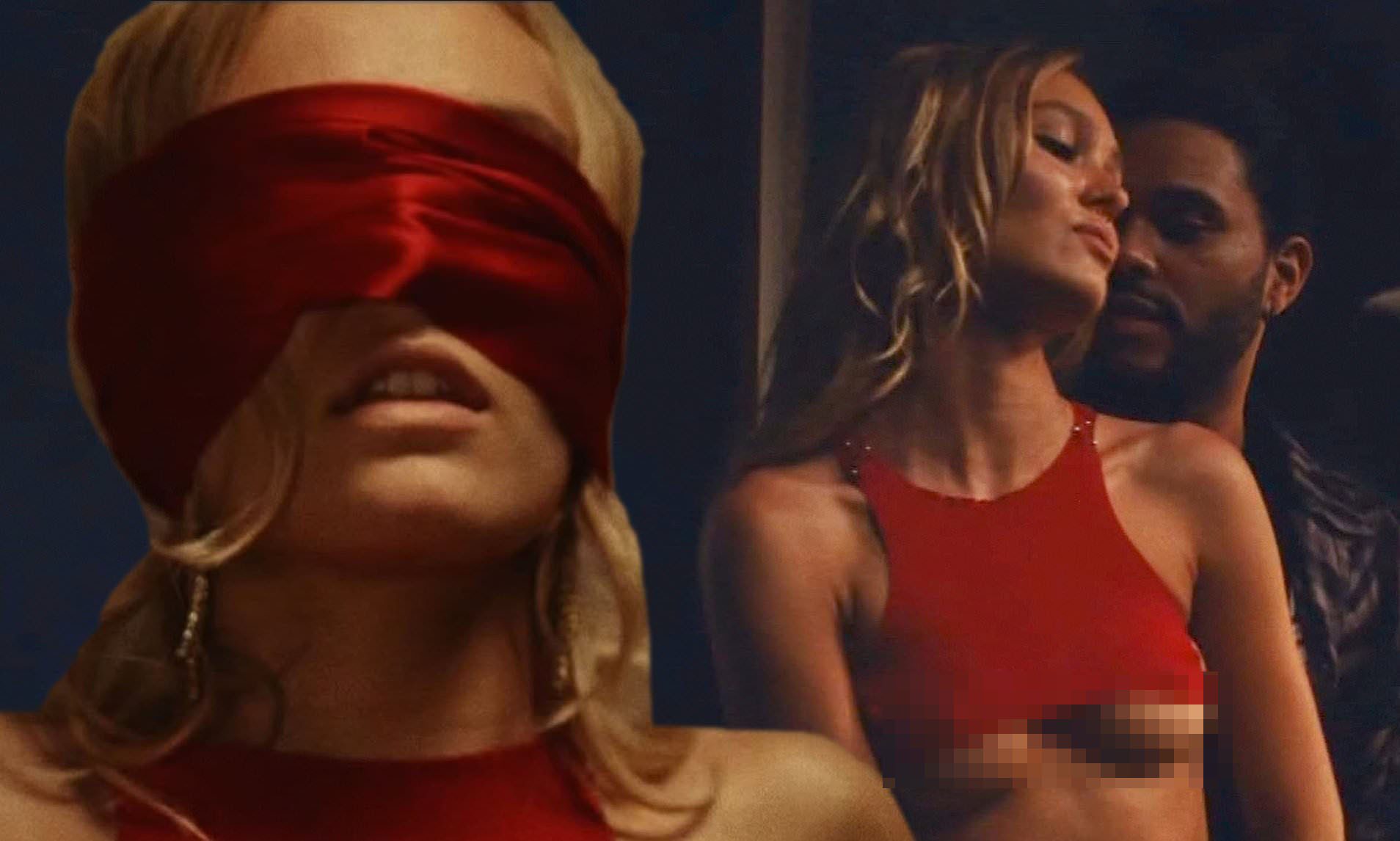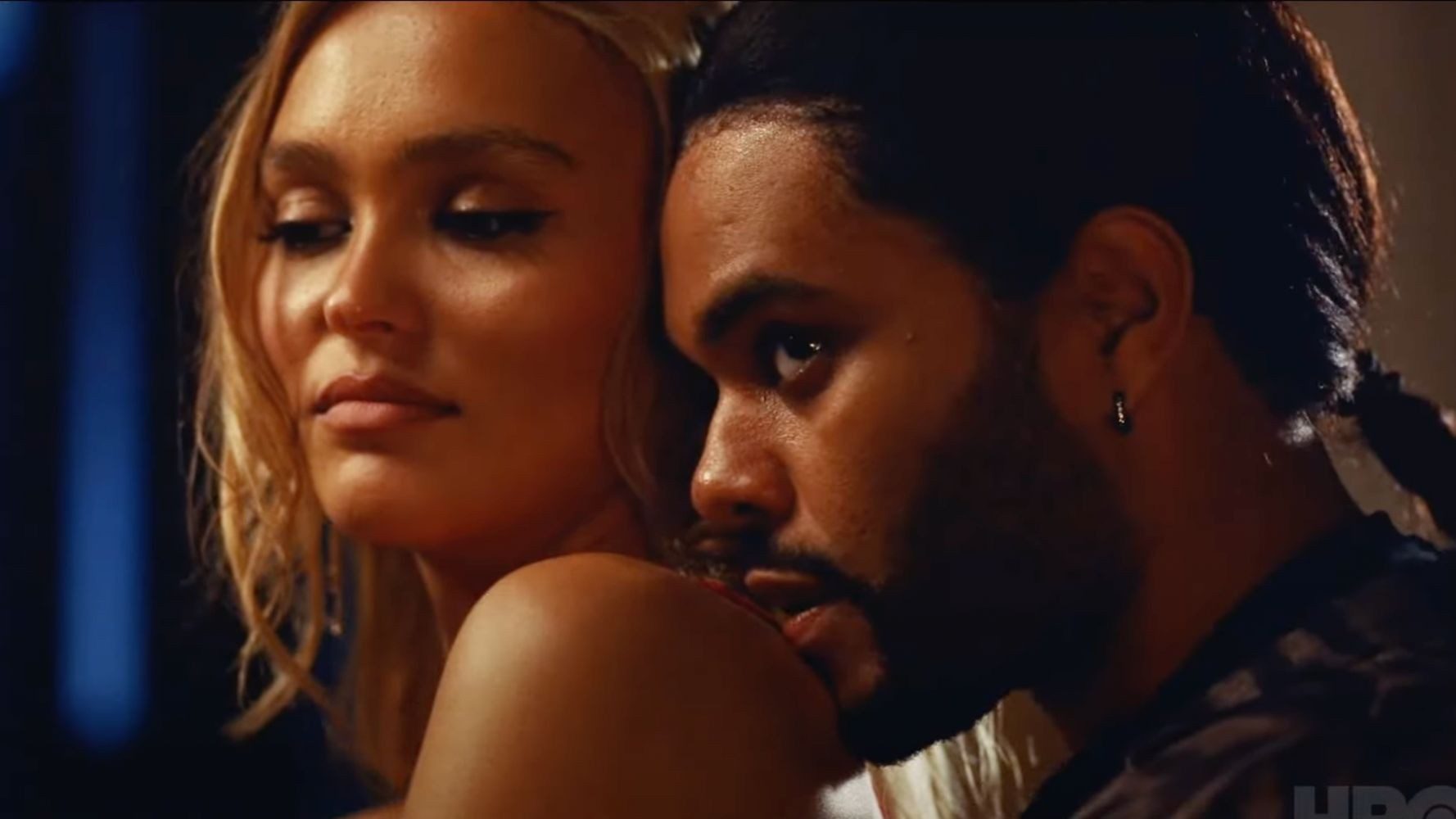The series The Idol, premiered at the Cannes Film Festival in May, has sparked significant controversy due to its inappropriate depictions and explicit content. The show follows pop star Jocelyn (Lily-Rose Depp) as she navigates her relationship with the enigmatic cult leader Tedros (The Weeknd).
In the final 10 minutes of episode 2, viewers witness a tense and intimate scene between Jocelyn and Tedros. It culminates in a moment where Jocelyn is fully exposed while Tedros, dressed in a suit, incites her with suggestive remarks. As the two characters engage, the camera captures their tumultuous connection. The scene ends with Lily-Rose Depp lying back in a vulnerable position while The Weeknd remains fully clothed.
The explicit scene between Lily-Rose Depp and The Weeknd in episode 2 of The Idol has been criticized as one of the most inappropriate in history (Image: Daily Mail)
GQ UK referred to the scene as “the most inappropriate in history.” The magazine praised the exceptional craftsmanship on screen that delivers an intense emotional experience, evoking feelings of love or desire intertwined with the pain of betrayal in moments of personal reflection. However, The Idol fails to create such impactful empathy, instead reducing emotional complexity to mere performance, where the female characters are often relegated to secondary roles.
According to GQ UK, the series becomes unconvincing when it does not adequately explain Jocelyn’s obsession with Tedros, merely suggesting that her infatuation is manipulated by the male character’s vague emotional cues. From what is shown on screen, the most compelling interpretation is that the show only seeks to engage the audience’s interest through the male gaze, while simultaneously indicating the female character’s willingness to be objectified.
Not only are critics dismissive of the show’s premise, viewers are also struggling to accept the “intimate” scenes presented in the second episode of The Idol. Variety reported that the latest episode, which aired on June 11, garnered 800,000 viewers on Max and HBO, a decline of over 100,000 compared to the previous episode. The premiere on June 4 attracted 913,000 viewers, but after that, audiences seemed to have lost interest, labeling it as “a disappointing way to end.”
Warner Bros Discovery, the parent company of HBO and Max, indicated that the viewing figures for both episodes were “almost identical.” In this case, 12% of the audience drop-off consisted of those who viewed the series through streaming platforms.
On social media, netizens commented that the explicit scene between Jocelyn and Tedros left them feeling disappointed, awkward, and somewhat embarrassed. One viewer compared the show to a bad trip and suggested that The Weeknd should focus more on music. This commentary received over 900 likes, contrasting with other internet users’ views.
Overall, audiences seem to find Abel Tesfaye (The Weeknd’s real name) to be a “disturbing character.” Many argue that he has lost respect for his role as a musician.
The Weeknd Speaks Out
On June 13, The Weeknd spoke up about his character in the 18+ film during an interview with GQ.
He stated that the purpose of the explicit scene in the second episode was not to create an intimate moment that evokes feelings for the audience.
“There’s nothing romantic about it. However, you might feel a certain way when watching that scene, regardless of whether it feels uncomfortable, awkward, or distasteful for the characters. All the emotions portrayed are pure: this woman is trying too hard to maintain control; this is a situation where he is not allowed to relax,” he mentioned, reminiscent of his song Blinding Lights.
He described the complex emotional landscape of intimacy as being portrayed in a “predatory” light, as Tedros struggles to believe that he could genuinely desire Jocelyn, even going so far as to enter her home and engage in predatory behavior with her.
“If we hit the mark, Jocelyn could be the biggest turning point for him. That moment is not meant to be a depiction of love. He is too selfish. When he steps into her home and looks around, he thinks about the things that are happening outside his mind, and this could be the most vulnerable time he has ever experienced,” the singer analyzed his character’s psychological portrayal.
The Weeknd also acknowledged that the character he plays is essentially a caricature. “He is quite despicable, a kind of moral failure. So why should I care for him? There’s nothing inherently mysterious or intriguing about him. We simply have to portray that exterior, costume, and hairstyle. He is a horrible person,” the Canadian star concluded.
The Weeknd describes his character as despicable, indicating he cannot bring any emotional depth to it (Image: The Idol)
According to Daily Mail, GQ UK, Page Six
























